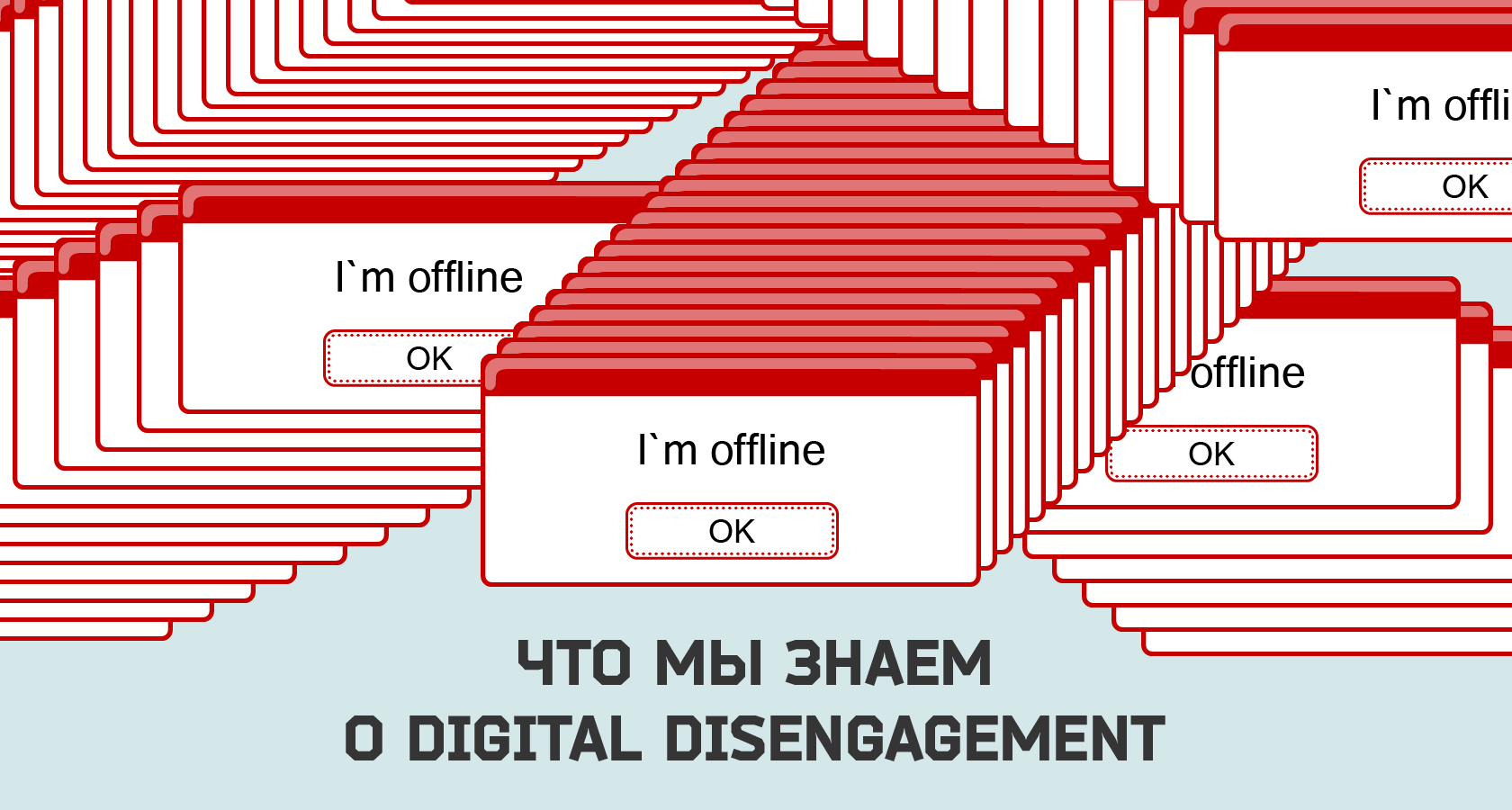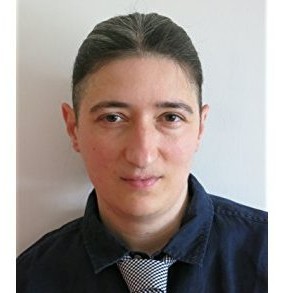трек «Интернет-исследования»
клуб любителей участвует в запуске направления «интернет-исследования» в магистратуре ИТМО по цифровым гуманитарным наукам. подробности — на сайте центра. набор идёт!

Когда мы только начинали придумывать и делать этот трек, у нас не было целостного образа той темы, которую мы здесь описываем. Не было устоявшихся тезисов и готового знания. Был интерес, контакты с экспертами и большой объём прочитанной и классифицированной литературы.
Первый обзор на эту тему был опубликован Аней Щетвиной перед самым началом школы в дайджесте #10 клуба любителей интернета и общества. Школа оказалась отличной возможностью для того, чтобы свести тексты и исследователей, связанных с этой темой, понять, какие вопросы и перспективы исследований тут возникают. Мы бы хотели подвести промежуточный итог тому, что мы обсуждали во время школы в виде своеобразной карты исследуемого нами поля.
Первый обзор на эту тему был опубликован Аней Щетвиной перед самым началом школы в дайджесте #10 клуба любителей интернета и общества. Школа оказалась отличной возможностью для того, чтобы свести тексты и исследователей, связанных с этой темой, понять, какие вопросы и перспективы исследований тут возникают. Мы бы хотели подвести промежуточный итог тому, что мы обсуждали во время школы в виде своеобразной карты исследуемого нами поля.
каким бывает disengagement
Изначально мы исходили из идеи, что разные практики disengagement’а можно рассматривать в совокупности. Однако, их разнообразие велико и есть потребность в систематизации. Некоторые характеристики и оппозиции взяты из существующих теорий, какие-то выявились во время совместной работы и дискуссий с участниками школы.
перформативный протест или часть повседневности
Disengagement может варьироваться по степени публичности и перформативности, с которыми он происходит. Если цель человека — предостеречь остальных, выразить своё недовольство или вступить в дискуссию — disengagement может оформляться как публичное протестное событие. Другой полюс — это личные практики, не совершаемые единократно, а практикуемые каждый день. Примеры таких практик мы обсуждали в одном из занятий курса, исследователи таких практик — Бен Лайт (disconnective practices) и Роб Китчин (slow computing).
личный или коллективный
Отказ и фильтрация использования цифровых технологий могут осуществляться разными субъектами. Это может быть один человек, который практикует disengagement для себя, это может быть семейная практика, а может быть сообщество, объединённое общими интересами или позицией или коммерческий детокс-лагерь, где люди, отключившись от интернета заводят новые знакомства. Некоторые из кейсов коллективного отключения рассмотрены в статье Ади Кунцман и Эсперансы Мияке. Также интересным кейсом отказа в религиозном сообществе амишей занимается исследовательница Линдси Эмс, вот её статья.
временный или постоянный
Для некоторых людей удаление — это способ решить конкретные временные проблемы, недолгий эксперимент или просто случайный душевный порыв. Так, уставшие от рабочей компьютерной рутины, уезжают в детокс-лагеря в Альпах, отдыхают, и возвращаются назад к своей работе с новыми силами.
Пользователи вконтакте могут воспринимать соцсеть почти как ролевую игру, а удаление из неё как отказ играть по правилам или следствие скуки (мне никто не пишет, вокруг одни тролли). Студенты удаляются для того, чтобы не отвлекаться во время сессии, а блогеры и люди, которым близок дух экспериментаторства — чтобы проверить себя и получить новый опыт.
Для других выход из цифры — это результат долгой рефлексии или сильного недовольства, это позиция и часть идентичности. Такой подход одновременно и более маргинальный и более радикальный. С одной стороны, он может быть связан с непониманием и бессознательным страхом, например, технофобией, при котором технологии воспринимаются как black box и просто отрицаются, без попыток понять, в чём именно они приносят пользу, а в чём кроется проблема. С другой стороны, при таком уходе из цифрового мира технологии могут проблематизироваться гораздо глубже, чем при временном отказе. Так, например, программисты могут видеть уязвимости социальных сетей и мессенджеров из принципа не пользоваться ими, чтобы не рисковать личными данными и не поддерживать неэтичную политику администраторов таких соцсетей.
Пользователи вконтакте могут воспринимать соцсеть почти как ролевую игру, а удаление из неё как отказ играть по правилам или следствие скуки (мне никто не пишет, вокруг одни тролли). Студенты удаляются для того, чтобы не отвлекаться во время сессии, а блогеры и люди, которым близок дух экспериментаторства — чтобы проверить себя и получить новый опыт.
Для других выход из цифры — это результат долгой рефлексии или сильного недовольства, это позиция и часть идентичности. Такой подход одновременно и более маргинальный и более радикальный. С одной стороны, он может быть связан с непониманием и бессознательным страхом, например, технофобией, при котором технологии воспринимаются как black box и просто отрицаются, без попыток понять, в чём именно они приносят пользу, а в чём кроется проблема. С другой стороны, при таком уходе из цифрового мира технологии могут проблематизироваться гораздо глубже, чем при временном отказе. Так, например, программисты могут видеть уязвимости социальных сетей и мессенджеров из принципа не пользоваться ими, чтобы не рисковать личными данными и не поддерживать неэтичную политику администраторов таких соцсетей.
радикальный или частичный
Конечно, далеко не все люди, практикующие отказ, ломают гаджеты и уходят в леса. Отказ или фильтрация происходят на разных уровнях и могут быть просто частью реапроприации какой-либо технологии, подстраивания её под себя. Но что тогда радикальный отказ? Отказ от всех социальных сетей? От интернета? От всех гаджетов? Этот вопрос показывает, что disengagement всегда относителен, он не происходит в вакууме, а отталкивается от какого-либо объекта и норм, связанных с этим объектом. Так, можно говорить о радикальном/частичном disengagement’е на разных уровнях.
происходящий на разных уровнях
— на уровне конкретной практики (не отвечать на рабочие сообщения почле 6 вечера)
— на уровне платформы (отказ от использовани инстаграма)
— на уровне группы платформ (не пользоваться всеми соцсетями и соцмедиа, купленными Facebook/ не пользоваться ничем кроме электронной почты)
— на уровне технологического объекта (отказ от смартфона)
— на уровне инфраструктуры (отказ от использования всего, что с помощью интернета связывает человека с другими)
— на уровне платформы (отказ от использовани инстаграма)
— на уровне группы платформ (не пользоваться всеми соцсетями и соцмедиа, купленными Facebook/ не пользоваться ничем кроме электронной почты)
— на уровне технологического объекта (отказ от смартфона)
— на уровне инфраструктуры (отказ от использования всего, что с помощью интернета связывает человека с другими)
причины
Наиболее яркий пример — недавняя акция #deletefacebook. Конечно, это специфический пример, потому что акция проходит публично. Многие случаи остаются частью личной повседневности людей и не афишируются. Так, во время исследования айтишников (которые мы проводим сейчас на школе), мы услышали мнение, что все айтишники пользуются телеграмом из-за его приватности.
Эта причина кажется одной из самых распространённых, по крайней мере она является частью большого количества дискурсов. Например: информационная перегрузка, диджитал-детокс, «осознанность» и т. д. Кроме заботы об усталости это также может быть забота об эмоциях, например, когда люди удаляются, чтобы не видеть болезненные для них новости.
Некоторые люди могут отказываться от гаджетов или социальных сетей в качестве эксперимента над собой. С одной стороны, это может быть новым интересным опытом, с другой — показать важность этих вещей в жизни. Кажется, что отказ имеет большой развлекательный потенциал. Так, детокс-лагеря могут быть не просто разгрузкой, а приключением, с путешествием и новыми впечатлениями. А некоторые приложения с помощью ограничений связи добавляют новых впечатлений пользователям. Например, приложение Pure даёт пользователям ограниченное время на поиск партнёра, за которое надо успеть познакомиться и договориться о месте встречи.
Эта причина отчасти пересекается с остальными. Потеря контроля может быть связана с личными данными, с семьёй, с досугом или работой.
Тоже хорошо описана Лорой в её статье для онлайн-журнала Flow. Эта причина может реализовываться на разных уровнях немного по-разному. Так, на уровне отдельных платформ это может быть переход с одной платформы на другую из эстетических предпочтений. На уровне пользования в целом — ограничение своего повседневного использования интернета с целью больше времени посвящать более эстетически привлекательной «реальной» жизни.
подходы
Хорошо продуманный и целостных теорий про отключение от сети нет. Есть несколько проектов, авторы которых пытаются классифицировать разные виды отключения, выявить их историю, причины и основные характеристики.

disconnection
В своей книге Disconnecting with Social Networking Sites (2014) Бен Лайт предлагает теоретическую рамку для описания разных практик взаимодействия с социальными сетями. Для Бена нет чёткого разделения между вовлечением и отключением. Он описывает разные по силе степени и разные формы взаимодействия с технологиями, многие из которых как-либо переиначивают норму и общую идею о том, как надо быть вовлечённым. Бен рассматривает в первую очередь социальные сети, но выделяемые им характеристики достаточно общие, можно применять их и к некоторым другим интернет-объектам и практикам.

disconnectivity practices
Пепита Хесселберг работает над проектом, отчасти похожем на то, что делает Ади — это общая рамка для анализа и описания разных видов отсоединённости от технологий. Она предалгает другое название — disconnectivity. Пока проект находится в разработке, но уже есть подробная и хорошая статья об истории исследований отсоединённости.
англоязычные термины
low-use, ex-use, non-use, resistance, digital disengagement, media refusal, digital suicide, digital disconnection, disconnectivity practices, logout, digital detox.
как переводить на русский?
История развития дискуссии о праве на отклбчение очень различается в России и англоязычных странах (откуда наши лекторы и авторы статей). Возможно поэтому в русском языке мы не нашли одного единственного подходящего слова, с помощью которого можно было бы перевести термин disengagement. Оригинальное слово образовано от английского 'engagement' — вовлечение или вовлечённость.
Однако подумать о возможных переводах стоит. Хотя бы для того, чтобы понять, какие разные импликации могут нести в себе слова, близкие этой теме, и в чём особенность оригинального понятия.
Однако подумать о возможных переводах стоит. Хотя бы для того, чтобы понять, какие разные импликации могут нести в себе слова, близкие этой теме, и в чём особенность оригинального понятия.
отключение, отсоединение
— слишком сильно связанные с материальностью понятия, как будто люди буквально выдергивают провод из компьютера. вводят дихотомию отключённый/подключённый
+ эти слова указывают на то, что человек не просто не-пользователь, а перестал быть пользователем, то есть исклбчаются те люди, которых описывают исследователи digital divide
+ эти слова указывают на то, что человек не просто не-пользователь, а перестал быть пользователем, то есть исклбчаются те люди, которых описывают исследователи digital divide
отказ
— это слово ближе англоязычному понятию refusal — это нечто, подразкмевающее радикальность или перформативность. Disengagement же может быть не только отказом, но и критикой, фильтрацией, изменением практик. Это не только про негативные действиячно и в большой степени про создание нового.
+ простое и понятное слово для описания большого ряда практик. Учитывается добровольный характер разрыва отношений с технологией.
+ простое и понятное слово для описания большого ряда практик. Учитывается добровольный характер разрыва отношений с технологией.
отвлечение
— не очень стильное слово, скорее про случайность и рассеянность.
+ это хороший антоним «вовлечению», почти буквальный перевод слова disengagement.
+ это хороший антоним «вовлечению», почти буквальный перевод слова disengagement.
отторжение
+ хорошо охватывает разные виды dd, это и про «купил кнопочный вместо смартфона» и про «поставил адблок».
— ассоциируется с иррациональным телесным неприятием или чем-то противоестественным.
— ассоциируется с иррациональным телесным неприятием или чем-то противоестественным.
библиография
Спецвыпуск First Monday о non-use, November 2015 http://firstmonday.org/ojs/index.php/fm/issue/view/463/showToc
Casemajor, N.; Couture, S.; Delfin, M.; Goerzen, M. and Delfanti, A. (2015) "Non-participation in digital media: toward a framework of mediated political action", Media Culture and Society, 37(6), 850−866.
Casinader, J (2010) Life unplugged. New Zealand Herald, 12 August. http://www.nzherald.co.nz/lifestyle/news/article.cfm?c_id=6&objectid=10 665 586
Cassidy, E., Light, B. (2014). Strategies for the suspension and prevention of connection: Rendering disconnection as socioeconomic lubricant with Facebook. new media & society, 16(7), 1169−1184.
Frazer, A. and Kitchin, R (2017) "Slow computing", working paper osf.io/preprints/socarxiv/rmxfk/
Helsper, E. J. (2009) "Digital disengagement by disabled people", Becta research report.
Helsper, EJ, Reisdorf, BC (2013) A quantitative examination of explanations for reasons for internet nonuse. Cyberpsychology, Behavior, and Social Networking 16(2): 94−99.
Helsper, EJ, Reisdorf, BC (2017) The emergence of a "digital underclass" in Great Britain and Sweden: Changing reasons for digital exclusion. Volume: 19 issue: 8, page (s): 1253−1270.
Hesselberth, P. (2017) "Discourses on disconnectivity and the right to disconnect", New Media and Society, journals.sagepub.com/doi/full/10.1177/1 461 444 817 711 449
Hesselberth, P. (2017) "On Disconnection", an interview blogs.cim.warwick.ac.uk/outofdata/2017/06/01/on-disconnection/
Karppi, T. (2011) "Digital suicide and the biopolitics of leaving Facebook", Transformations, 20 www.transformationsjournal.org/journal/issue20/article02.shtml
Kuntsman, A. & Miyake, E. (2015), 'Paradoxes of Digital Dis/engagement: Final Report.' Working Papers of the Communities & Culture Network+ Vol.6 (Oct 2015).
Kuntsman, A. & Miyake, E. (2016), 'Paradoxes of Digital dis/engagement: a follow up study (businesses and services).' Working Papers of the Communities & Culture Network+, 7.
Light B (2014) Disconnecting with Social Networking Sites, Basingstoke and New York: Palgrave Macmillan.
Lutz, C. and & Hoffmann, C. P. (2017) "The dark side of online participation: exploring non-, passive and negative participation", Information, Communication & Society, 20(6) http://www.tandfonline.com/doi/abs/10.1080/136 9118X.2017.1 293 129
Lyons, D (2010) The high price of Facebook. Newsweek, 155(22), 22.
Morozov E. (2013) To Save Everything, Click Here: The Folly of Technological Solutionism. PublicAffairs.
Portwood-Stacer, L. (2012) "How we talk about media refusal", Flow. www.flowjournal.org/author/laura-portwood-stacer-new-york-university/
Portwood-Stacer, L. (2013) "Media refusal and conspicuous non-consumption: The performative and political dimensions of Facebook abstention", New Media and Society, 15(7), 1041−1057.
Portwood-Stacer, L. (2014) "Care Work and the Stakes of Social Media Refusal", Critical Personas. www.newcriticals.com/care-work-and-the-stakes-of-social-media-refusal/prin
Rettberg, J.W. (2014) Seeing Ourselves Through Technology: How We Use Selfies, Blogs and Wearable Devices to See and Shape Ourselves. Palgrave.
Satchell C., Dourish P. (2009) Beyond the user: use and non-use in HCI. Melbourne. Australia
Selwyn N (2003) "Apart from technology: understanding people’s non-use of information and communication technologies in everyday life"// Technology in Society, 25(1), 99−116http://www.sciencedirect.com/science/article/pii/S0160791X02000623
Selwyn N (2006) Digital division or digital decision? A study of non-users and low-users of computers// Poetics. Vol 34. Issues 4−5. P. 273−292
York, C. and Turcotte, J. (2015) "Vacationing from Facebook: Adoption, Temporary Discontinuance, and Readoption of an Innovation", Communication Research Reports, 32(1), 54−62.
Casemajor, N.; Couture, S.; Delfin, M.; Goerzen, M. and Delfanti, A. (2015) "Non-participation in digital media: toward a framework of mediated political action", Media Culture and Society, 37(6), 850−866.
Casinader, J (2010) Life unplugged. New Zealand Herald, 12 August. http://www.nzherald.co.nz/lifestyle/news/article.cfm?c_id=6&objectid=10 665 586
Cassidy, E., Light, B. (2014). Strategies for the suspension and prevention of connection: Rendering disconnection as socioeconomic lubricant with Facebook. new media & society, 16(7), 1169−1184.
Frazer, A. and Kitchin, R (2017) "Slow computing", working paper osf.io/preprints/socarxiv/rmxfk/
Helsper, E. J. (2009) "Digital disengagement by disabled people", Becta research report.
Helsper, EJ, Reisdorf, BC (2013) A quantitative examination of explanations for reasons for internet nonuse. Cyberpsychology, Behavior, and Social Networking 16(2): 94−99.
Helsper, EJ, Reisdorf, BC (2017) The emergence of a "digital underclass" in Great Britain and Sweden: Changing reasons for digital exclusion. Volume: 19 issue: 8, page (s): 1253−1270.
Hesselberth, P. (2017) "Discourses on disconnectivity and the right to disconnect", New Media and Society, journals.sagepub.com/doi/full/10.1177/1 461 444 817 711 449
Hesselberth, P. (2017) "On Disconnection", an interview blogs.cim.warwick.ac.uk/outofdata/2017/06/01/on-disconnection/
Karppi, T. (2011) "Digital suicide and the biopolitics of leaving Facebook", Transformations, 20 www.transformationsjournal.org/journal/issue20/article02.shtml
Kuntsman, A. & Miyake, E. (2015), 'Paradoxes of Digital Dis/engagement: Final Report.' Working Papers of the Communities & Culture Network+ Vol.6 (Oct 2015).
Kuntsman, A. & Miyake, E. (2016), 'Paradoxes of Digital dis/engagement: a follow up study (businesses and services).' Working Papers of the Communities & Culture Network+, 7.
Light B (2014) Disconnecting with Social Networking Sites, Basingstoke and New York: Palgrave Macmillan.
Lutz, C. and & Hoffmann, C. P. (2017) "The dark side of online participation: exploring non-, passive and negative participation", Information, Communication & Society, 20(6) http://www.tandfonline.com/doi/abs/10.1080/136 9118X.2017.1 293 129
Lyons, D (2010) The high price of Facebook. Newsweek, 155(22), 22.
Morozov E. (2013) To Save Everything, Click Here: The Folly of Technological Solutionism. PublicAffairs.
Portwood-Stacer, L. (2012) "How we talk about media refusal", Flow. www.flowjournal.org/author/laura-portwood-stacer-new-york-university/
Portwood-Stacer, L. (2013) "Media refusal and conspicuous non-consumption: The performative and political dimensions of Facebook abstention", New Media and Society, 15(7), 1041−1057.
Portwood-Stacer, L. (2014) "Care Work and the Stakes of Social Media Refusal", Critical Personas. www.newcriticals.com/care-work-and-the-stakes-of-social-media-refusal/prin
Rettberg, J.W. (2014) Seeing Ourselves Through Technology: How We Use Selfies, Blogs and Wearable Devices to See and Shape Ourselves. Palgrave.
Satchell C., Dourish P. (2009) Beyond the user: use and non-use in HCI. Melbourne. Australia
Selwyn N (2003) "Apart from technology: understanding people’s non-use of information and communication technologies in everyday life"// Technology in Society, 25(1), 99−116http://www.sciencedirect.com/science/article/pii/S0160791X02000623
Selwyn N (2006) Digital division or digital decision? A study of non-users and low-users of computers// Poetics. Vol 34. Issues 4−5. P. 273−292
York, C. and Turcotte, J. (2015) "Vacationing from Facebook: Adoption, Temporary Discontinuance, and Readoption of an Innovation", Communication Research Reports, 32(1), 54−62.
другие темы курса
март-май 2018
клуб любителей интернета и общества
курс про digital disengagement
авторы идеи: Полина Колозариди, Ади Кунцман, Аня Щетвина
тьюторы: Аня Паукова, Аня Щетвина
вёрстка и редактура: Маша Мурадова, Аня Щетвина
иллюстрации: Алиса Рангаева
щёлк-щёлк: Лёня Юлдашев
клуб любителей интернета и общества
курс про digital disengagement
авторы идеи: Полина Колозариди, Ади Кунцман, Аня Щетвина
тьюторы: Аня Паукова, Аня Щетвина
вёрстка и редактура: Маша Мурадова, Аня Щетвина
иллюстрации: Алиса Рангаева
щёлк-щёлк: Лёня Юлдашев
